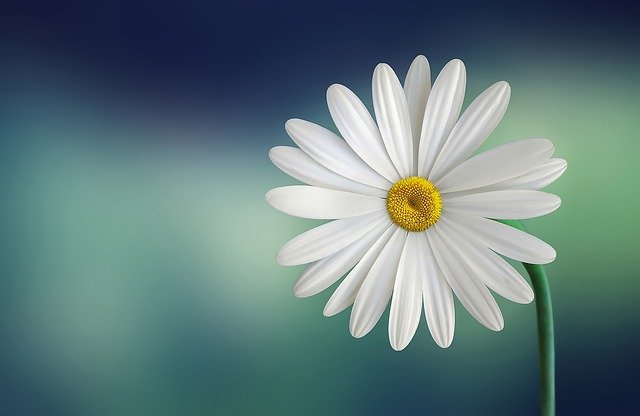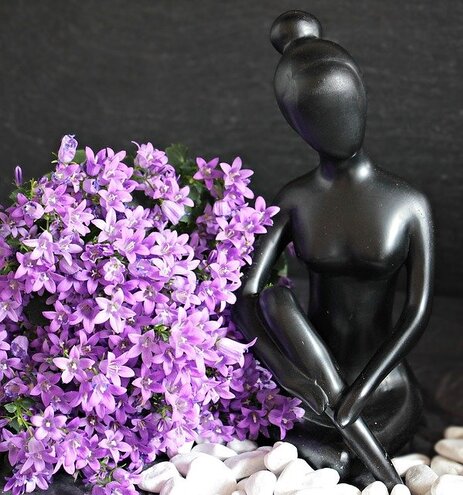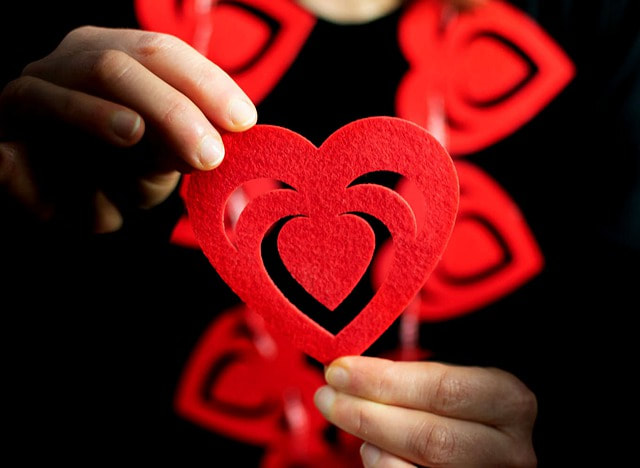Dr. Janice Lundy
|
Today I offer Part 2 of a Pure Presence Podcast, the follow up I promised from last month's "Entering the Morning Graciously."
In the podcast, you will find guidance about how to create an evening and bedtime routine that nurtures presence, ease, and comfort, while also providing restful sleep. I've used this routine, "A 30-Minute Evening Detox," for many years and it has truly transformed by life. Many individuals struggle with sleep issues, even nighttime anxiety and nightmares. I hope these suggestions help. Peaceful sleep and dreaming to you! http://www.awakenedliving.com/PresenceBlog/eveningroutine.m4a. (16 min.)
0 Comments
Today, I am happy to offer a Pure Presence Podcast.
This subject has been on my heart quite a lot lately. It's about how we enter our day—with thoughts and feelings of anxiety, overwhelm or worry (especially about the events and concerns of the day), rather than ease, hopefulness, or gratitude. Offering presence to ourselves is paramount each and every day, and we can do so by creating an early morning routine that is gracious. I call this "The 30-Minute Wake-Up Call." I hope you find it useful! p.s. And for you newshounds, I offer some pointed advice on when during the day to watch the news. :-) Listen here (18 min.) http://www.awakenedliving.com/PresenceBlog/30MinuteWakeUpCall.m4a For me, the ability to hold presence for oneself and for others is firmly rooted in good self-care. If my self-care is in place, it's much more likely that I will feel calm and centered, and better able to hold presence for someone else. When I've not taken good care of myself I am impatient, crabby, and easily exhausted. Does this sound familiar?
During this time of pandemic, and in this strange time of what I call "re-entry," it's difficult to know what is the right thing to do; what is the best thing to do. This can cause ongoing feelings of distress. 'Do I stay in or venture out?' 'Do I meet up with my friends like I used to, or do I continue to stay away from social gatherings?' No matter what your answers to these questions might be, beneath them all remains the need to continue to ground yourself in good self-care practices. It's vital that we stay faithful to what nourishes us, keeps our minds calm, and our hearts open. I read this article today and felt it contained such good, basic information about self-care that I wanted to pass it along to you. https://my.happify.com/hd/self-care-practices-to-help-beat-covid-19-anxiety-and-depression/ Even if you don't have strong indicators of depression or anxiety, the 10 practices cited here can help you feel stronger, steadier, more present. I was pleasantly surprised to see that, for the most part, I have been staying faithful to these practices. Of course, there's always the off day, but I do notice that I've maintained my equilibrium most of the time the last 14 months. I even took journaling back up a while ago. It felt good to put pen to paper and write about what I was feeling and experiencing. I talk to my spiritual director every month. I get solid sleep, try to eat healthy, go for brisk walks, and color (my hobby). I prioritize getting out in nature. (I have to engage in personal hygiene because I am on Zoom a lot!) I do not drink. I try to be mindful in all that I do. Mindfulness, very truthfully, has been my saving grace since 1994. Without it, I am prone to anxiety and worry. I share these thoughts with you not because I am trying to get it all right, but because I have found that these 10 things really do work to keep us well and fully present—especially when life is difficult. When you look at the list of 10, what do you notice? What are you doing well? What could be improved upon? Let's remember that we can make wise choices moment by moment, and that at any time we can begin again. Let us be patient and gentle with ourselves as we do. After all, practice makes progress! And all of these things combined help us be more present to ourselves and capable of offering presence to others -- which is a very wise and loving thing to do in today's fragile world. I don't know anyone who doesn't wish to be more loving. A loving attitude is difficult to access, however, if we are being assailed by other emotions, especially those that we might deem negative.
Today, I share a Guided Practice with you that can help you turn your attention away from difficult emotions to refocus on the love that lives in you and can be transmitted through you. I call it "Leaning into Love." Attending well to our emotional selves is an attribute of Presence. Taking good care of ourselves—our moods, thoughts and feelings—ultimately enables us to be more present and loving toward others. I hope you find it helpful. (Mp3 is 5 min. long.) http://www.awakenedliving.com/podcasts/LeanintoLove.mp3 Sometime, if you’re fortunate, you’ll come across a string of well-intentioned words that not only turn your head, but have the power to turn your life around. In 2007, I ran into one such strand. I was reading, Lovingkindness: The Revolutionary Path of Happiness, by meditation teacher, Sharon Salzberg. I was keen on learning more about a blessing practice called metta, a Pali word, for “unconditional friendliness.” It is sourced in Buddhist tradition, yet versions of it are found in many spiritual traditions, including Judaism and Celtic Christianity. It is an inter-spiritual practice that supports all theologies. One of the chapters opened with a portion of a poem by Galway Kinnell: The bud stands for all things, even for those things that don’t flower, for everything flowers, from within, of self-blessing. As I read it, a chord of recognition quivered in my throat. I was much in need of self-blessing! You see, as a born nurturer, someone prone to give and give, I rarely took time to turn goodwill toward myself. As a result, I often felt parched and depleted, my own fault, of course. Reading about the notion of self-blessing was like finding a cool pool from which to drink in the middle of a desert. I knew immediately I must dedicate myself to the practice of metta. It would be healing. I would flower. I also knew that the love I so desperately needed to show myself would flow out to others when my own well was suitably replenished. There was no sense of selfishness, only self-awareness that would allow me to be more present to others by being present to myself. In time, self-blessing became my oasis. Placing my hand upon my heart, I breathed slowly and rhythmically, pacing my breath with the phrases of metta, offering them to myself first: May I be safe. May I be strong. May I be happy. May I be peaceful and at ease. The phrases served me well over the next few months. I repeated them several times a day at pivotal moments. They were quite the prescription: calming my too-busy mind and reducing heart-racing anxiety. Repeating the phrases also softened my emotions, expanded my feelings toward myself, and gave me permission to be with myself in a kind, nonjudgmental way. This is one of the miracles of metta: as we say the phrases to ourselves, we get to notice all of our stories and excuses, the way we fool ourselves, shedding light on our wounds, and, ultimately, engaging in self-forgiveness and healing. This generous act of blessing organically opened the doors of my heart toward others too. I began to feel softer towards them, more understanding, patient and kind. I could more clearly see how we all struggle with a Pandora’s box of inner ailments and outward challenges. Self-compassion and compassion grew in me like a well-tended flower. When we adopt the whole of this contemplative practice, extending the phrases of goodwill to five categories of others (benefactors, loved ones, strangers, difficult people, all beings and creatures), goodwill begins to flow like a river. With ongoing metta practice, our judgments and expectations of others are illuminated. Metta is a powerful tool for undoing anything that has limited our ability to love. In the end, when we offer the phrases of blessing to sentient beings everywhere, we realize that we are all connected in a great web of being-ness. We are all trying to be happy. We are all trying to find our way "home." We are more alike than dissimilar. We are actually one body. What Galway Kinnell wrote was true: “everything flowers from within, of self-blessing.” Indeed, a universal garden of compassionate humans can bloom, one tender bud at a time. Blessing ourselves and others is a supremely kind (and healing) thing to do. A Self-Blessing Practice: Place your hand on your heart. See if you can receive your own goodwill right now. How does this feel? Are you experiencing any resistance blessing yourself in this way? Do thoughts of selfishness arise? Rest assured that blessing yourself is not an act of self- absorption, but a way to calm and soothe your overworked mind and heart. ©2018, Janice L. Lundy  Excerpted from Living Gently with Myself: A 30-Day Guidebook by Janice L. Lundy. Heart to Heart Press, 2018. We continue to live in uncertain times. There is not a single community in the world that is untouched by the choices being made by human beings today. In the U. S. where I live, we are faced with decisions about direct governance. As I listen to the rhetoric of politicians and views offered by various organizations, one potent question keeps coming up for me, "How shall we live?" I've asked this question of myself ever since a radical awakening in 1994, "How shall I live?" What are my deepest values? What are the truths I hold dear? What choices do I need to make to ensure that I am living these values? Perhaps it all comes down to self-governance. Knowing that, even though we live in a society that dictates much about how we live, ultimately, the final decision about how is up to each of us. Governing ourselves, in my view anyway, has to do with the thoughts that occupy my mind and the feelings that rule my heart. I can't control everything I think or feel, but I can govern wisely and make healthy and sustainable choices that foster my well-being—physical, mental, emotional and spiritual. No one can tell me what to think or feel. I get to choose these for myself. Holding presence for oneself has everything to do with self-governance. Being present for oneself you bear witness to what is stirring inside you; you acknowledge and tend to it well. You take care of yourself from the inside out, being non-judgmentally and compassionately present to everything that's there. Welcoming. Open-hearted and curious. Warm and kind. Wise self-governance helps us be someone who can participate in the world with a heart that bears witness to it all—the pain and suffering, the blessings and joys. Presence for self leads to an increased ability to be purely present for others just as they are—just as the world is—because we have done so for ourselves first. A Little GiftEnjoy this 90-Second Blessing I created for
self-governance through self-care. http://www.awakenedliving.com/podcasts/90SecondBlessingSelfCare6.mp3 On any given day I may receive several emails from family, friends and colleagues which speak to their level of stress or worry given the times we are living in. My response is often something like, "Please take good care of yourself. These ARE challenging times." An act of self-care, of self-compassion, is an act of presence.
Today, I'm culling a video from my archives that offers a bit of sage advice about how to kindly take care of ourselves in a moment of difficulty, a moment of suffering. Suffering is experienced anytime we are disconnected from our calm, clear, wise self. I hope this message with a practice helps restore your equanimity as you tenderly care for yourself in the midst of any challenge you might be facing. Watch the video on Vimeo here: https://vimeo.com/189211572 Life being what it is these days, these thoughts live in my heart. I hope you are continuing to make good and wise choices for yourself because, ultimately, they inform your capacity to be present to yourself, as well as to patiently and kindly hold presence for others.
Vast amounts of negative media, television, video games and unsavory language weaken the mind's resilience. They tire and desensitize us. Make a lovingly kind choice for yourself today by reducing the noise level in your life. Turn off the television and radio. Allow yourself more quiet time. Grant yourself “peaceful pauses” throughout the day: periods of stopping to access your peaceful center. There is comfort and security to be found there. Periods of stillness and solitude rebuild inner strength and can revitalize you. Our center is our Source, and our Source is peace. ©2020, JLL, This Sacred Moment Friends, I am excited to share a video interview I recorded just yesterday with my friend, Lisa Erickson. Lisa is the author of the ground-breaking new book, Chakra Empowerment for Women: Self-Guided Techniques for Healing Trauma, Owning Your Power & Finding Overall Wellness (Llewellyn, 2019). In this intimate conversation, we talk about the ways we can care for our energy body (which is intricately interwoven with our whole health—body, mind and spirit). I love the 3 practices she shared with us that are so vital for staying grounded, open, loving and healthy in these times. Enjoy! About: Lisa Erickson is an energy worker, writer, teacher and mom to three. Lisa’s primary modality is chakra-based energy work, although she is also a certified mindfulness meditation instructor, and a certified Feeding Your Demons facilitator. Her specialty is Women’s Energetics – women’s subtle anatomy, and practices and tools that women can employ to heal, empower, and awaken themselves. She specializes in life transits, kundalini, and sexual trauma healing. Visit her websites: https://enlightenedenergetics.com/about-lisa-erickson/ and https://chakraempowermentforwomen.com |
Presence isa calm, open-hearted space of welcome & service.
Greetings, Friend,I'm glad you're here. Welcome to this space of exploration, deepening understanding & the practice of presence across traditions.
SubscribeReceive an email notification when new reflections and podcasts are posted.
Archives
May 2023
Categories
All
|
|
|
Dr. Janice Lynne Lundy (PsyD, DMin, MPC)
is The Gerald May Professor of Spiritual Direction & Counseling at the Graduate Theological Foundation. She is an interspiritual director/mentor, educator and counselor who has been pointing people back toward the Sacred for nearly thirty years. Connect |






